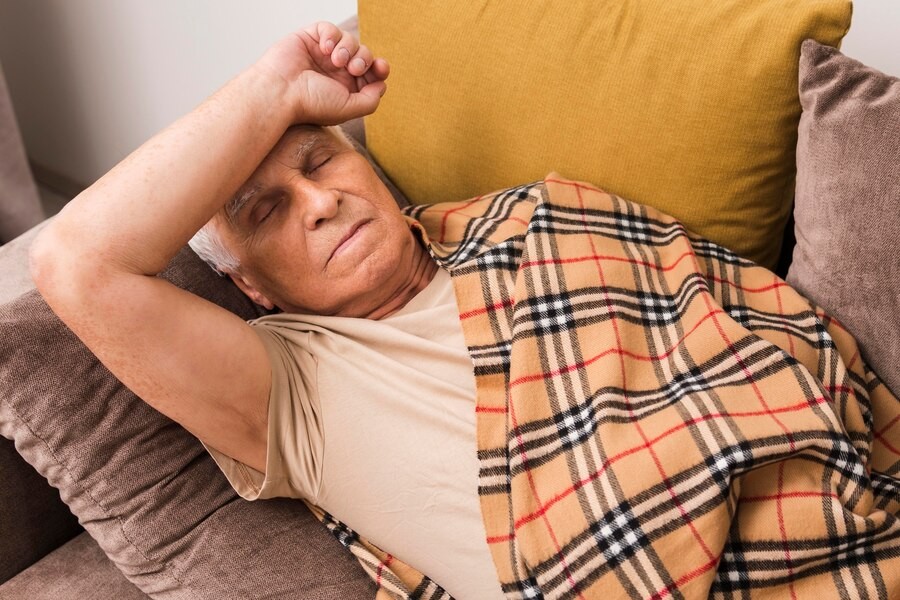Sleeping difficulty is a common complaint among the elderly, presenting as trouble falling asleep, frequent awakenings during the night, or waking up too early in the morning.
These sleep disturbances can impact the quality of life for seniors. Elderly individuals who struggle with sleep often feel fatigued during the day, have lower energy levels, experience difficulty concentrating, and may even face a higher risk of certain health issues.
Common Causes of Insomnia in the Elderly
Various factors can contribute to sleep disorders in older adults, including physical, psychological, and environmental changes. Here are some key causes of insomnia in seniors:
Natural Changes in Sleep Patterns
As people age, sleep patterns naturally evolve. These changes can reduce both the amount and quality of sleep at night.
Age-related alterations in the sleep cycle often result in less deep sleep and more light sleep. Consequently, seniors tend to wake up more frequently during the night and may experience less restful sleep.
Additionally, the body’s internal clock may shift, leading older adults to feel sleepy earlier in the evening and wake up earlier in the morning.
Health Conditions Affecting Sleep
Many older adults have specific health issues, such as arthritis, back pain, nerve damage, respiratory concerns, or digestive problems, which can interfere with their ability to sleep well.
Medications with Sleep-Disrupting Side Effects
Some seniors require multiple medications to manage health conditions. Certain medications can disrupt sleep, either by interfering with sleep patterns or by acting as diuretics, which increase nighttime urination.
Emotional and Psychological Factors
Mental well-being significantly influences sleep quality in seniors. Older adults going through major life adjustments, such as the loss of a partner, feelings of loneliness, retirement, or an inability to engage in previous hobbies, may be more prone to anxiety, depression, or stress. These mental health challenges can make it difficult for seniors to fall asleep and stay asleep through the night.
Reduced Physical Activity
Reduced physical activity is common among seniors, either due to mobility challenges or lack of a regular routine. This inactivity can prevent the body from becoming tired enough for restful sleep.
Uncomfortable Sleeping Environment
Environmental factors, such as room temperature, noise, or light, can also impact sleep quality for the elderly. Creating a comfortable sleeping environment can help improve sleep.
Aim to maintain the room temperature between 18-22° Celsius. Use thick curtains or close windows to reduce noise, and adjust the lighting to create a restful atmosphere.
Addressing sleep issues in seniors begins with identifying the underlying causes. When necessary, encourage consultation with a doctor to receive tailored and effective treatment. Seniors can also explore the Ai Care health consultation service, available for download on the App Store or Play Store.
Interested in learning more about other health conditions? Click here!
- dr Hanifa Rahma
Alexa Fry (2023). Insomnia and Older Adults. Available from: https://www.sleepfoundation.org/insomnia/older-adults
Mount Sinai. Sleep disorders in the elderly. Available from: https://www.mountsinai.org/health-library/diseases-conditions/sleep-disorders-in-the-elderly
WebMD (2023). What to Know About Insomnia as You Age. Available from: https://www.webmd.com/healthy-aging/insomnia-in-elderly
Jenna Fletcher (2023). What to know about insomnia in the elderly. Available from: https://www.medicalnewstoday.com/articles/insomnia-in-the-elderly
Help Guide (2024). Sleep and Aging: Sleep Tips for Older Adults. Available from: https://www.helpguide.org/aging/healthy-aging/how-to-sleep-well-as-you-age












